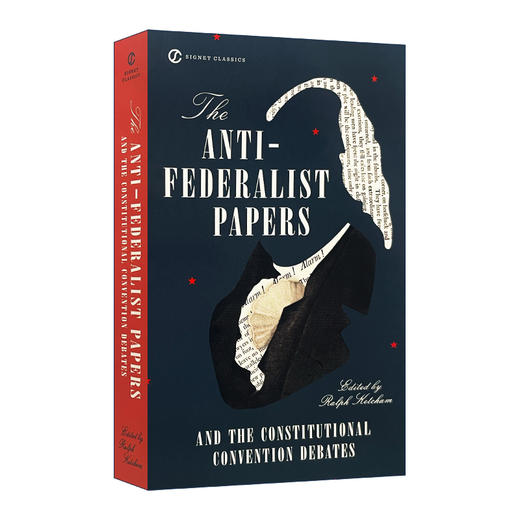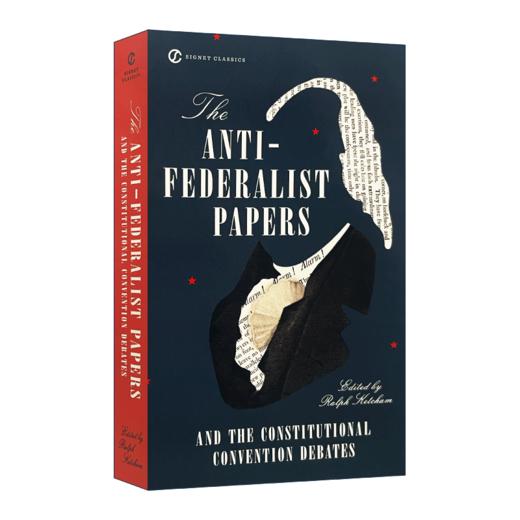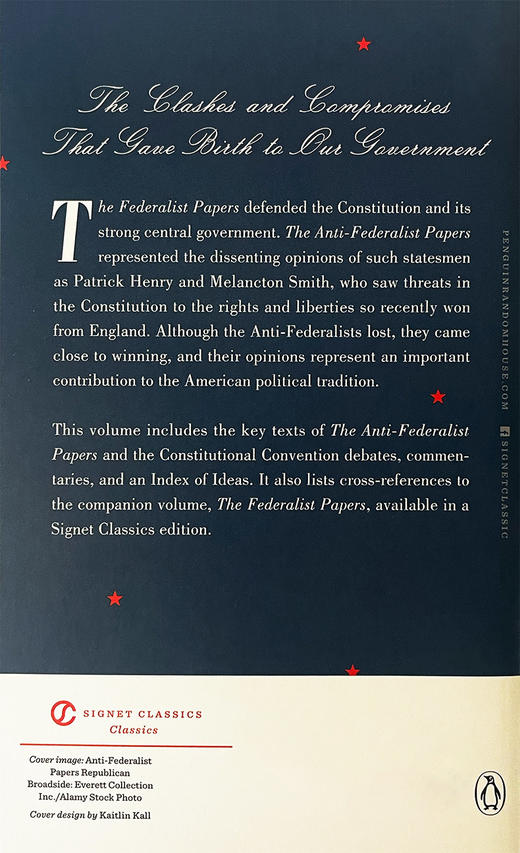正版 反联邦党人文集及制宪会议辩论集 英文原版 The Anti-Federalist Papers 英文版进口书籍
| 运费: | ¥ 0.00-999.00 |
| 库存: | 27 件 |
商品详情
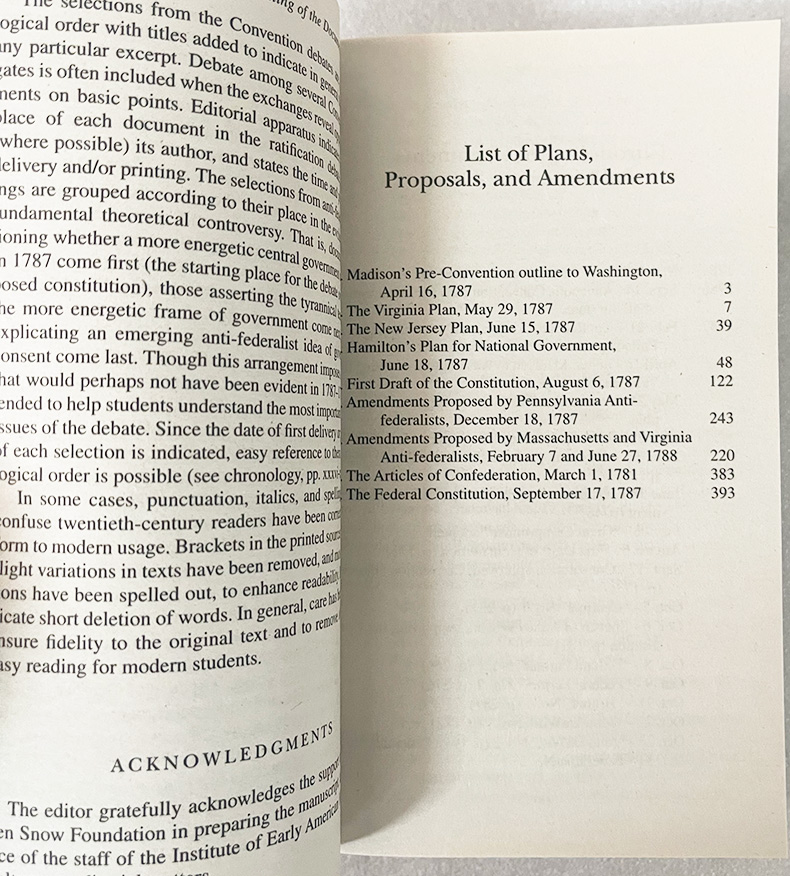
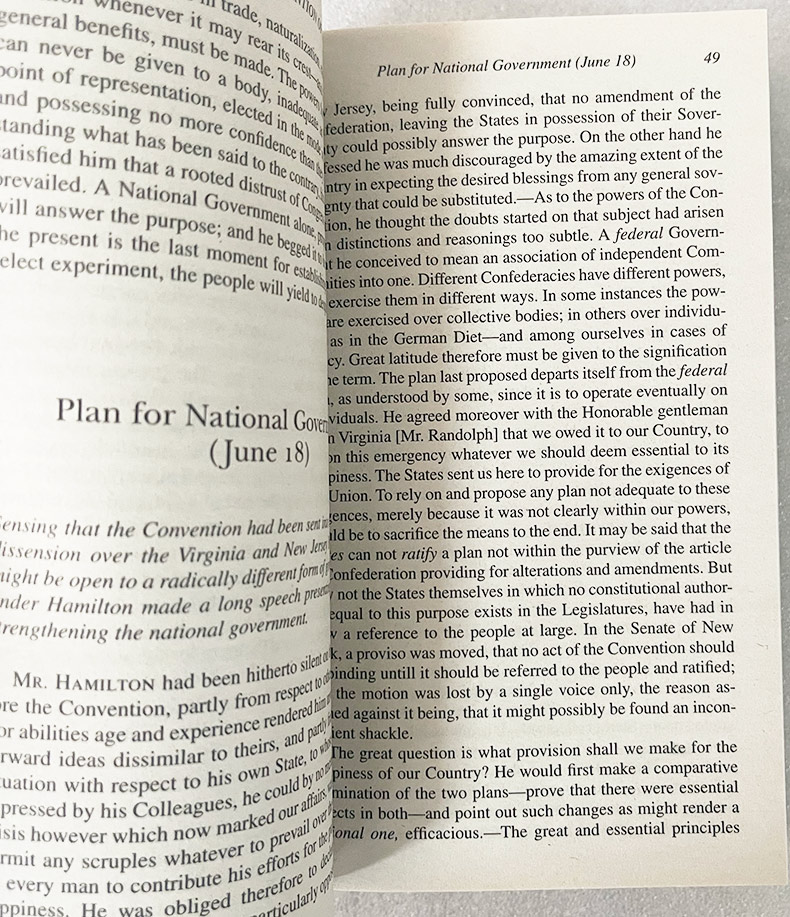
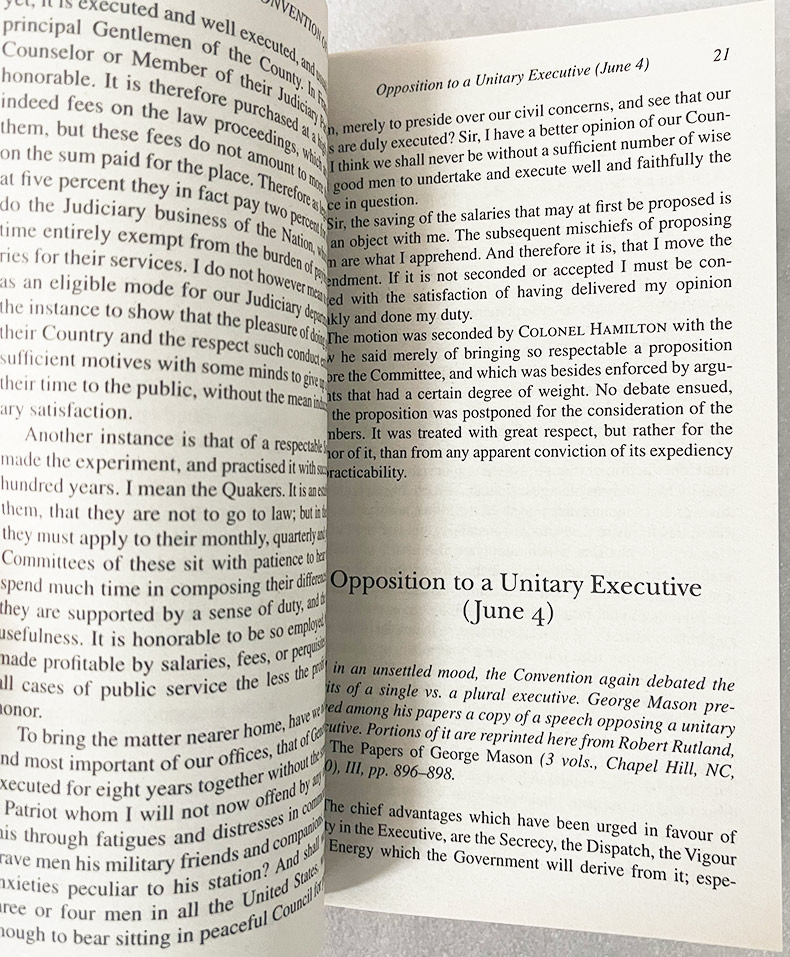

书名:The Anti-Federalist Papers and the Constitutional Convention Debates反联邦党人文集及制宪会议辩论集
难度:Lexile蓝思阅读指数1090
作者:Ralph Ketcham
出版社名称:SignetClassics
出版时间:2003
语种:英文
ISBN:9780451528841
商品尺寸:10.7 x2.5x 17.2 cm
包装:简装
页数:440 (以实物为准)

The Anti-Federalist Papers and the Constitutional Convention Debates《反联邦党人文集及制宪会议辩论集》是Signet Classics推出的简装便携全英文版原著,由Ralph Ketcham主编,并作序。
THE BIRTH OF THE CONSTITUTION
TheFederalist Papersdefended theConstitutionand its strong central government.The anti-Federalist Papersrepresented the dissenting opinions of such statesmen as Patrick Henry and Melancton Smith, who saw threatsin the Constitution totherights and liberties so recently won from England.Although the Anti-Federalists lost, they came close to winning, and their opinions represent an important contribution to the American political tradition.
This volume includes the key text ofThe Anti-Federalist Papersandthe Constitutional Convention debates, commentaries, and an Index of Ideas. It also lists cross-references to its companion volume,The Federalist Papers, available in a Signet Classics edition.
Edited and with an Introduction by Ralph Ketcham

INTRODUCTION
ARRANGEMENT, USE, AND EDITING OF THE DOCUMENTS
ACKNOWLEDGEMENTS
LIST OF PLANS, PROPOSALS, AND AMENDMENTS
CHRONOLOGY OF DOCUMENTS AND IMPORTANT EVENTS
SUMMARY OF OPPOSED ARGUMENTS IN FEDERALIST AND ANTI-FEDERALIST WRITINGS
Part IThe Federal convention of 1787
James Madison to George Washington (April 16, 1787)
The Virginia Plan (May 29)
Debate on Representation (May 31)
Debate of Executive Power (June 1)
Opposition to Executive Salaries (June 2)
Opposition to a Unitary Executive (June 4)
Electing Representatives (June 6)
Debate on Method of Electing Senators (June 7)
Debate on Veto of State Laws (June 8)
The New Jersey Plan (June 15)
Debate on The New Jersey Plan (June 16)
Plan for National Government (June 18)
Opposition to The New Jersey Plan (June 19)
Debate on Federalism (June 21)
Length of Term in Office for Senators (June 26)
Debate on State Equality in the Senate (June 28-July 2)
Majority Rule the Basic Republican Principle (July 5, 13, 14)
Election and Term of Office of the National Executive (July 17, 19)
The Judiciary, the Veto, and Separation of Powers (July 21)
Appointment of Judges (July 21)
Method of Ratification (July 23)
Election of Executive (July 24, 25)
First Draft of the Constitution (August 6)
Qualifications of Suffrage (August 7, 10)
Citizenship for Immigrants (August 9)
Executive Veto Power (August 15)
Slavery and Constitution (August 21, 22)
Election and Powers of the president (Sept. 4, 5, 6)
Opposition to the Constitution (Sept. 7, 10, 15)
Signing the Constitution (Sept. 17)
Part IIRatification of the Constitution
Speech of James Wilson (October 6, 1787)
“John De Witt” Essay I, Oct.22, 1787
“John De Witt” Essay II, Oct.27, 1787
Speech of Patrick Henry (June 5, 1788)
Amendments Proposed by the Massachusetts Convention,(Feb. 7, 1788)
Amendments Proposed by the Virginia Convention, (June 27, 1788)
Amendments to the Constitution (June 27, 1788)
Amendments Proposed by The Rhode Island Convention (March 6, 1790)
Speech of Patrick Henry (June 7, 1788)
Address of the Pennsylvania Minority (Dec.18, 1787)
Letters from the federal Farmer, I and II (Oct.8 and 9, 1787)
“Brutus,” Essays I, VI, X-XII, and XV(Oct.18 and Dec.27, 1787; Jan. 24 and 31, Feb. 7 and March 20, 1788)
The Meaning of Government by Consent (Explained in Federalist Numbers 57-72)
“John De Witt,” Essay III (Nov. 5, 1787)
“Cato,” Letters V and VII(Nov. 22, 1787; Jan. 3, 1788)
The Alleged Danger From the Powers of the Union to the State Governments Considered (Madison)
“Brutus,” Essays IV and XVI (Nov.29, 1787 and April 10, 1788)
Speeches of Melancton Smith (June 20-27, 1788)
APPENDIX I: The Articles of Confederation 1777 (1781)
APPENDIX II: The Constitution of the United States of America
APPENDIX III: Principal Speakers at the Federal Convention of 1787
ANNOTATED BIBLIOGRAPHY
INDEX OF IDEAS

Ralph Ketchamis Professor of Historyand Political Science at the Maxwell School of Citizenship and Public Affairs ofSyracuse University.He is the author of many books on American History, includingPresidents Above Party: The First American Presidency;From Colony to Country: The Revolution in American Thought, 1750-1820; andJames Madison: A Biography.

I have been honoured with your letter of the 31 of March, and find with much pleasure that your views of the reform which ought to be pursued by the Convention, give a sanction to those which I have entertained. Temporising applications will dishonor the Councils which propose them, and may foment the internal malignity of the disease, at the same time that they produce an ostensible palliation of it. Radical attempts,although unsuccessful,will at least justify the authors of them.
Having been lately led to revolve the subject which is to undergo the discussion of the Convention, and formed in my mindsomeoutlines of a new system, I take the liberty of submitting them without apology to your eye.
Conceiving that an individual independence of the States is utterly irreconcilable with their aggregate sovereignty, and that a consolidation of the whole into one simple republic would be as inexpedient as it is unattainable. I have sought for some middle ground, which may at once support a due supremacy of the national authority, and not exclude the local authorities wherever they can be subordinately useful.
I would propose as the ground-work that a change be made in the principle of representation According to the present form of the Union in which the intervention of the States is in all great cases necessary to effectuate the measures of Congress, an equality of suffrage does not destroy the inequality of importance in the several members. No one will deny that Virginia and Massachusetts have more weight and influence both within and without Congress than Delaware or Rhode Island. Under a system which would operate in many essential points without the intervention of the State Legislatures, the ease would be materially altered. A vote in the national Councils from Delaware would then have the same effect and value as one from the largest State in the Union.I am ready to believe that such a change will not be attended with much difficulty. A majority of the States, and those of greatest influence, will regard it as favorable to them. To the Northern States it will be recommended by their present populousness;to the Southern by their expected advantage in this respect. The lesser States must in every event yield to the predominant will. But the consideration which particularly urges a change in the representation is that it will obviate the principal objections of the larger States to the necessary concessions of power.

- 华研外语 (微信公众号认证)
- 本店是“华研外语”品牌商自营店,全国所有“华研外语”、“华研教育”品牌图书都是我司出版发行的,本店为华研官方源头出货,所有图书均为正规正版,拥有实惠与正版的保障!!!
- 扫描二维码,访问我们的微信店铺
- 随时随地的购物、客服咨询、查询订单和物流...
